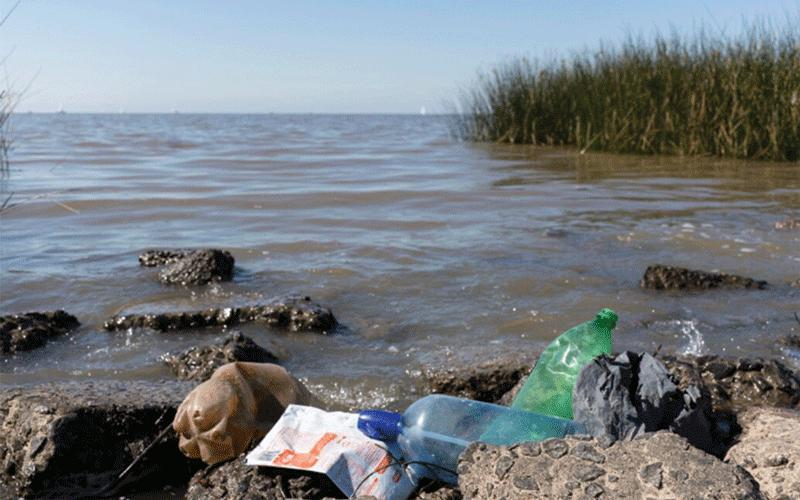By Tonderayi Matonho
Africa-Press – Zimbabwe. IN Zimbabwe, the clash between economic ambition and environmental preservation has reached a critical point.
As foreign investors flock to the nation, urban and rural councils face mounting pressure to accommodate their activities, often at the expense of ecological integrity.
Despite repeated warnings from government officials and critical health experts about the dire consequences of industrial pollution, many stakeholders continue to operate with impunity.
As communities bear the brunt of this crisis, their stories reveal a growing desperation for accountability and transformative change.
Zimbabwe is at a crossroads, with its natural landscapes increasingly threatened by unchecked industrial and mining activities. As foreign investors flock to the country, eager to capitalise on its resources, urban and rural councils often overlook environmental regulations to attract business.
The result? A landscape marred by massive pollution that threatens both public health and the environment.
Mining corporations, in particular Chinese companies, are significantly contributing to environmental degradation in pristine mountainous areas, leading to deforestation, soil erosion, water contamination and air pollution, resulting in respiratory issues and waterborne diseases among nearby communities.
The Save River, for example, which serves as a lifeline for many communities alongside it, is particularly at risk of siltation and degradation.
Local farmers, who rely on its waters for irrigation, have reported a significant decline in water quality, directly linked to industrial runoff in recent years.
“We can no longer trust the river to provide for us,” says local farmer Jabulani Chitotombe. “It’s heartbreaking to see our river system and its resources destroyed.”
As the pollution crisis deepens, the voices of those most affected are becoming increasingly desperate. Some villagers have described their struggles with pollution-related health and crop issues.
“We used to drink straight from the river; now it’s no longer the same,” said Tafadzwa Chimpungu, a villager.
“My crops are dying because of the growing pollution,” laments Nyasha, another local farmer.
Tinashe Moyo, a leading environmental health expert, articulates the urgency of the situation.
“We are witnessing a public health crisis unfold before our eyes. Industrial and mining pollution is causing respiratory diseases, skin ailments and other serious health issues,” he warns. “The most vulnerable populations are bearing the brunt of such negligence.”
The reality of industrial and mining pollution is not just theoretical; it manifests in the lives of urban and peri-urban communities everyday.
Some factories are discharging large quantities of waste into dams, lakes, rivers and streams, and the smell of toxic waste fills the air.
Residents of neighbourhoods adjacent to these marine systems report alarming increases in health problems.
“We can’t even open our windows anymore without feeling sick and even allow our children to play,” laments Lucy Moyo, a mother of three living near a tributary of Manyame River, now carrying large quantities of pollutants from negligent industrial sites.
Frustration is palpable among government officials, who are increasingly vocal about the need for strict adherence to environmental regulations. The country’s Environment ministry has been a prominent advocate for change.
“We’ve issued numerous warnings, yet many investors and councils continue to ignore them. This isn’t just about regulations; it’s about safeguarding our future,” stated a senior official in the Environment ministry, emphatically.
However, experts feel that ineffective laws and a lack of enforcement mechanisms have left communities and pristine ecological zones vulnerable and unprotected.
“It’s high time we take a hard stance and speak out against those who pollute our environment,” the expert said.
Urban and rural councils play a critical role in regulating industrial and mining activities, yet many have been accused of complicity in the pollution crisis.
Eager to attract foreign investment, some councils have neglected their responsibilities, allowing industries to operate with minimal oversight.
In cities like Harare and Bulawayo, community leaders have raised alarm about councils’ actions or lack thereof.
“They are more interested in the revenue from these industries than the health of the environment and citizens,” says community activist Sarah Ndlovu. “This is clearly a betrayal of our trust.”
This complicity has led to a pattern of environmental degradation that is difficult to reverse. In Harare, for example, the local council has been criticised for rapid urbanisation without a check on the effects and impacts on the environment.
The result has been a toxic cocktail of pollutants and residents suffering from various health issues.
Hence, the impact of industrial and mining pollution on Zimbabwe’s pristine ecological zones is particularly alarming. Areas once celebrated for their biodiversity now face severe threats.
The Zambezi River basin, a vital ecosystem, is being compromised by toxic waste from industrial and mining activities. Reports of contaminated water have emerged, raising serious concerns among environmentalists.
Rudo Kanyoka, an ecologist, emphasised the need for immediate intervention. “These ecological zones are not just beautiful landscapes; they are essential for our biodiversity and economic sustainability. Allowing pollution to compromise them is a grave mistake,” she said.
Addressing the pollution crisis in Zimbabwe requires collaboration among all stakeholders. Experts agree that a multi-faceted approach is essential. This includes revising existing laws, enhancing enforcement mechanisms and fostering a culture of accountability among investors and councils.
The government must commit to revising, strengthening and reinforcing environmental regulations.
Increasing penalties for non-compliance, establishing monitoring systems and ensuring that urban and rural councils are held accountable for their oversight are crucial steps going forward.
Source: NewsDay
For More News And Analysis About Zimbabwe Follow Africa-Press






